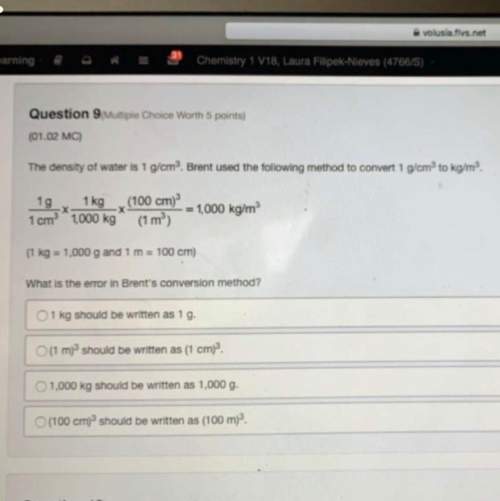Match the chemical equation with the type of reaction it represents
S8+ 1202 —-> 8SO3...

Chemistry, 23.03.2020 21:40, dthompson365
Match the chemical equation with the type of reaction it represents
S8+ 1202 —-> 8SO3
2Na+ 2H20 —> 2NaOH + H2
2C7H6O2 + 19O2 —> 14CO2 + 6H20
SIO2 + 4HF —> SiF4 + 2H20
6H3B03 —> H4B6O11 + 7H20
Li3N + 3NH4NO3 —> 3LINO3 + (NH4)2N
2Al(OH)3 + 3H2SO4 —> Al2(SO4)3 + 6H20
single replacement
double replacement
combustion
acid/base neutralization
synthesis
decomposition

Answers: 1
Other questions on the subject: Chemistry

Chemistry, 22.06.2019 05:50, aylengarcia090
What are transitions between a liquid and gas called? identify which way they are transitioning
Answers: 2

Chemistry, 22.06.2019 10:10, babyphoraaaaa
For the reaction, 4 a(g) + 3 b(g) => 2 c(g), the following data were obtained at constant temperature. experiment initial[a],mol/l initial [b],mol/l initial rate, m/min 1 0.200 0.150 5.00 2 0.400 0.150 10.0 3 0.200 0.300 10.0 4 0.400 0.300 20.0 which of the following is the correct rate law for the reaction? 1. rate = k[a]2[b]2 2. rate = k[a][b] 3. rate = k[a]2[b] 4. rate = k[a][b]2
Answers: 3

Chemistry, 22.06.2019 12:30, hayleyconsole
Nebulae are enormous clouds in outer space. they are made mostly of hydrogen gas, helium gas, and dust. some nebulae glow brightly, while others do not. the stars that people see are huge, bright balls of glowing gas. they are made mostly of hydrogen and helium. which statement correctly describes other ways in which nebulae and stars are different? a. stars can form inside a nebula but a nebula can never be produced by any star. b. a star always has a higher density than a nebula. c. stars can never form inside a nebula but a nebula can be produced by any star. d. a nebula always has a higher density than a star.
Answers: 3
Do you know the correct answer?
Questions in other subjects:



English, 08.04.2020 00:04

Biology, 08.04.2020 00:04


Mathematics, 08.04.2020 00:04

Mathematics, 08.04.2020 00:04


Chemistry, 08.04.2020 00:04








